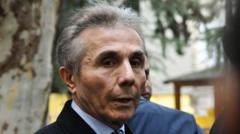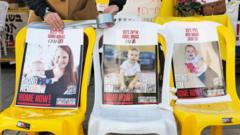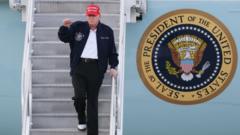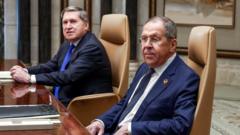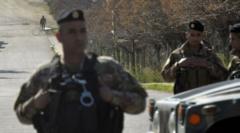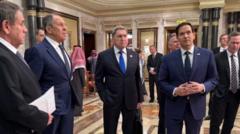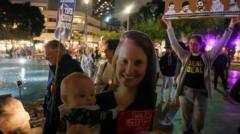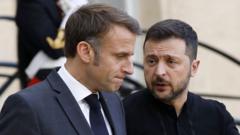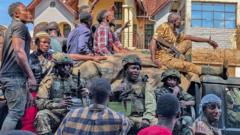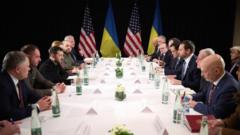Despite international calls for peace, M23 rebels have taken control of Bukavu, exacerbating the humanitarian crisis and triggering accusations against Rwanda for its involvement.
M23 Rebels Capture Strategic City of Bukavu in Eastern DR Congo
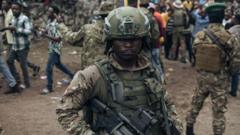
M23 Rebels Capture Strategic City of Bukavu in Eastern DR Congo
The recent advance of M23 rebels into Bukavu raises significant concerns over regional stability and ongoing violence in the Democratic Republic of Congo.
M23 rebels have entered Bukavu, the second-largest city in the eastern region of the Democratic Republic of Congo (DRC), amplifying fears of escalating violence in the region. Corneille Nangaa, leader of the Congo River Alliance, which comprises M23 militants, confirmed to Reuters that the rebels began their advance on Friday evening and intend to push further as of Saturday. This comes in the wake of a series of violent confrontations that have displaced hundreds of thousands of individuals recently.
The Tutsi-led M23 group has been repeatedly linked to Rwandan backing, with DRC officials accusing Rwanda of pursuing "expansionist ambitions" under the guise of security measures. This situation mirrors earlier conflicts, including M23's temporary seizure of Goma in 2012. The current capture of Bukavu represents a potential escalation in regional hostilities, particularly as the city serves as a crucial point for the mineral trade due to its geographic location bordering Rwanda.
Reports indicate that prior to entering Bukavu, M23 fighters had already taken the airport situated about 30 kilometers north, with minimal resistance from local militia or Congolese army units. However, violent clashes were reported on Bukavu's outskirts. In a related tragedy, local media reported the discovery of 70 bodies in a church in the northern village of Mayba, exacerbating concerns regarding the ongoing conflict and the involvement of other militant groups such as the Allied Democratic Forces (ADF), alleged to be linked to ISIS.
Residents have been advised by local authorities to remain indoors amidst the chaos. DR Congo President Félix Tshisekedi called for sanctions against Rwanda during his speech at the Munich Security Conference, emphasizing the need to halt the exploitation of DRC's natural resources by foreign powers while stating that such actions will no longer be tolerated.
Conversely, Rwandan President Paul Kagame dismissed the notion of foreign troops in DRC and emphasized that Rwanda's actions are primarily driven by security concerns stemming from Hutu rebels operating within Congolese territory. In light of this crisis, the African Union (AU) is set to discuss the urgent need for a ceasefire at its upcoming summit in Ethiopia, highlighting the necessity for military solutions to be set aside in favor of diplomatic resolutions.
The situation remains fluid, with the potential for further escalations in violence and a humanitarian catastrophe looming as the international community calls for renewed peace efforts.



